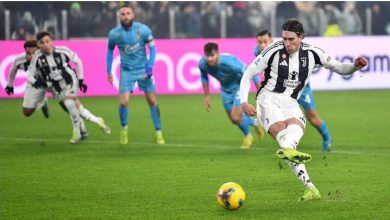In an electrifying North London derby, one team faced off against their arch-rivals in a match that showcased the intensity and passion inherent to this historic rivalry. With a scoreline of 2-1, the home side emerged victorious, dominating the game and maintaining strong form in the league. However, among the talking points of the match, one player’s absence was notably conspicuous: Dominik Solanke.
From the kickoff, the home team displayed their intent to seize control of the match. Their pressing game was relentless, with every player tirelessly working to stifle the opposition’s attempts to build from the back. The first goal came early in the match when an attacking player capitalized on a defensive error, slotting the ball coolly into the net.
However, amid the jubilant celebrations, the away side struggled to find their rhythm. Build-up play was sluggish, and the absence of Solanke was heavily felt. His capability to link up play, stretch defenses, and provide crucial goals was sorely missed. As a result, the attacking efforts appeared disjointed, with the team’s forward often isolated, left with the burden of creating opportunities rather than finishing them.
As the match progressed, the home team continued to apply pressure, with their midfielders pressing high and forcing the visitors into mistakes. The second goal came shortly before halftime, delivered with precision and leaving the goalkeeper with no chance. At 2-1, the game seem to slide further away from the visitors, and the absence of Solanke was emphasized as the team failed to respond effectively.
In the second half, tactical adjustments were made to try and reclaim control. Fresh legs and more attacking options were introduced, but despite several goal-scoring opportunities, they struggled to break through the well-organized defense. Solanke’s lack of presence in the final third continued to haunt the visitors, who lacked the creativity and guile necessary to mount a successful challenge.
The visitors finally found their breakthrough late in the match with a well-timed finish that ignited hopes of a dramatic comeback. However, as they surged forward in pursuit of the equalizer, it became increasingly clear that Solanke’s absence hindered any potential for a cohesive response.
The scoreline read 2-1 in favor of the home team, a result that reinforced their claims as serious title contenders. For the visitors, the result was a painful reminder of the impact of missing key players. Solanke’s unavailability highlighted the need for a robust squad capable of competing at the highest level, especially against fierce rivals.
In the aftermath of the match, questions surrounding Solanke’s absence will undoubtedly arise. Was it a tactical decision or injury-related? Regardless, his absence had significant ramifications for the team’s performance, illustrating just how reliant squads can be on their star players to deliver in crucial matches.
This North London derby was a stark depiction of the home team’s strengths and the visitors’ vulnerabilities, with Dominik Solanke’s absence echoing loudly on the pitch. As the home side celebrated their well-deserved victory, the visitors were left to ponder their missed opportunities, emphasizing the need for consistency and depth to compete effectively in future fixtures.








